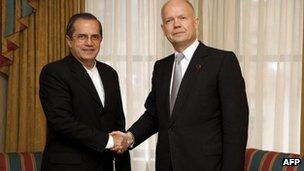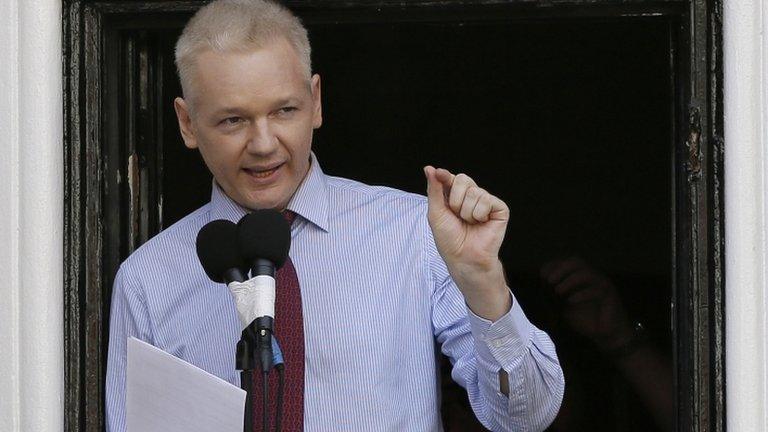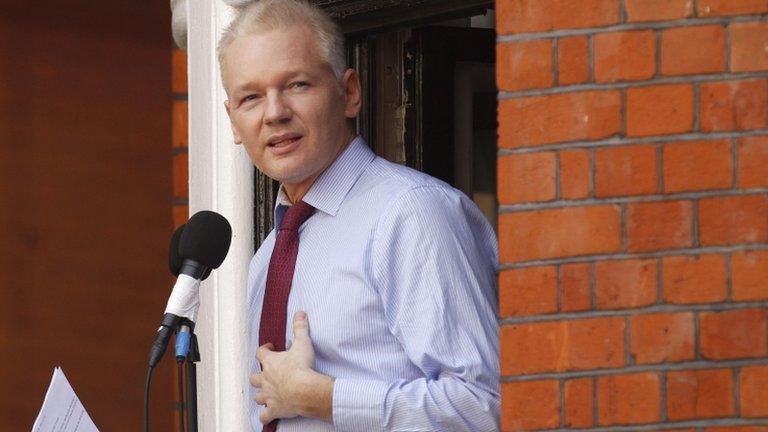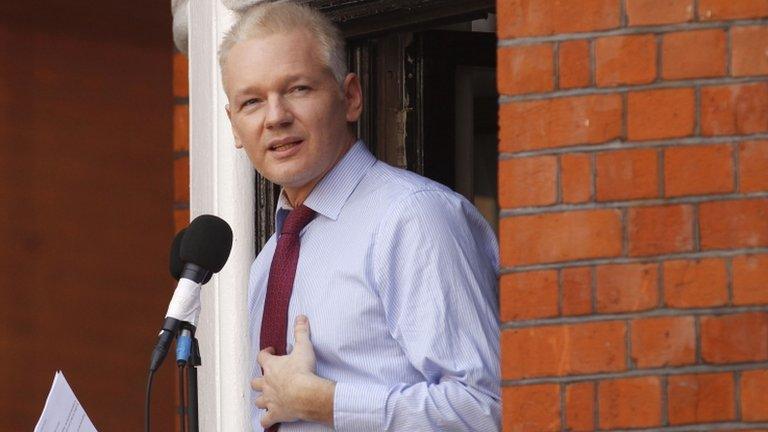Julian Assange: Amnesty calls for Swedish assurances
- Published

Mr Assange addressed a meeting at the United Nations by videolink
Amnesty International has urged Sweden to "break the current impasse" in the Julian Assange extradition case by giving him assurances that he will not be handed over to the US.
The Wikileaks founder, who is living at Ecuador's London embassy, is fighting UK efforts to send him to Sweden.
He faces questioning over sex assault claims, which he denies.
Amnesty said fears he will face a US trial over Wikileaks "have played no small part in the current stand-off".
It added that it has no evidence that Sweden plans to extradite Mr Assange to the US but if such a "forced transfer" did take place, it believed he would be exposed to a "real risk of serious human rights violations".
Mr Assange, 40, who has now been at Ecuador's embassy for 100 days, has been granted asylum by the country.
In a statement,, external Nicola Duckworth, Amnesty's senior director for research, said: "If the Swedish authorities are able to confirm publicly that Assange will not eventually find himself on a plane to the USA if he submits himself to the authority of the Swedish courts then this will hopefully achieve two things.
"First, it will break the current impasse and second it will mean the women who have levelled accusations of sexual assault are not denied justice.
"It is vital that states show they are serious about dealing with allegations of sexual violence and that they respect both the rights of the women who made the complaints and the person accused."
In 2010, two women accused Mr Assange of committing sexual offences against them while he was in Stockholm to give a lecture.
He says the sex was consensual and he regards the case as politically motivated. His website has published leaked sensitive diplomatic cables involving various countries, including the US.
'The way ahead'
Amnesty's call came as Foreign Secretary William Hague held talks with his Ecuadorean counterpart Ricardo Patino on the sidelines of the United Nations General Assembly in New York.

The meeting took place on the sidelines of the United Nations General Assembly
Mr Hague reiterated that the UK was under a legal obligation to extradite Mr Assange to Sweden.
Ecuador was sheltering him under the concept of "diplomatic asylum" which did not exist in UK law, Mr Hague told him.
Mr Hague added that UK extradition law included wide human rights safeguards and "requested the government of Ecuador to study these provisions closely in considering the way ahead".
Under international law, both the UK and Sweden would need to agree to any attempt to send Assange to the US.
The Foreign Secretary's spokesman added: "Both ministers agreed that they were committed to the search for a diplomatic solution to Mr Assange's case.
"They were willing to meet again at this level in due course to continue these exchanges."
Earlier, Mr Assange addressed a fringe meeting at the General Assembly via videolink from London where he called on the US to halt its "persecution" of Wikileaks.
- Published31 August 2012

- Published3 September 2012

- Published13 March 2015
